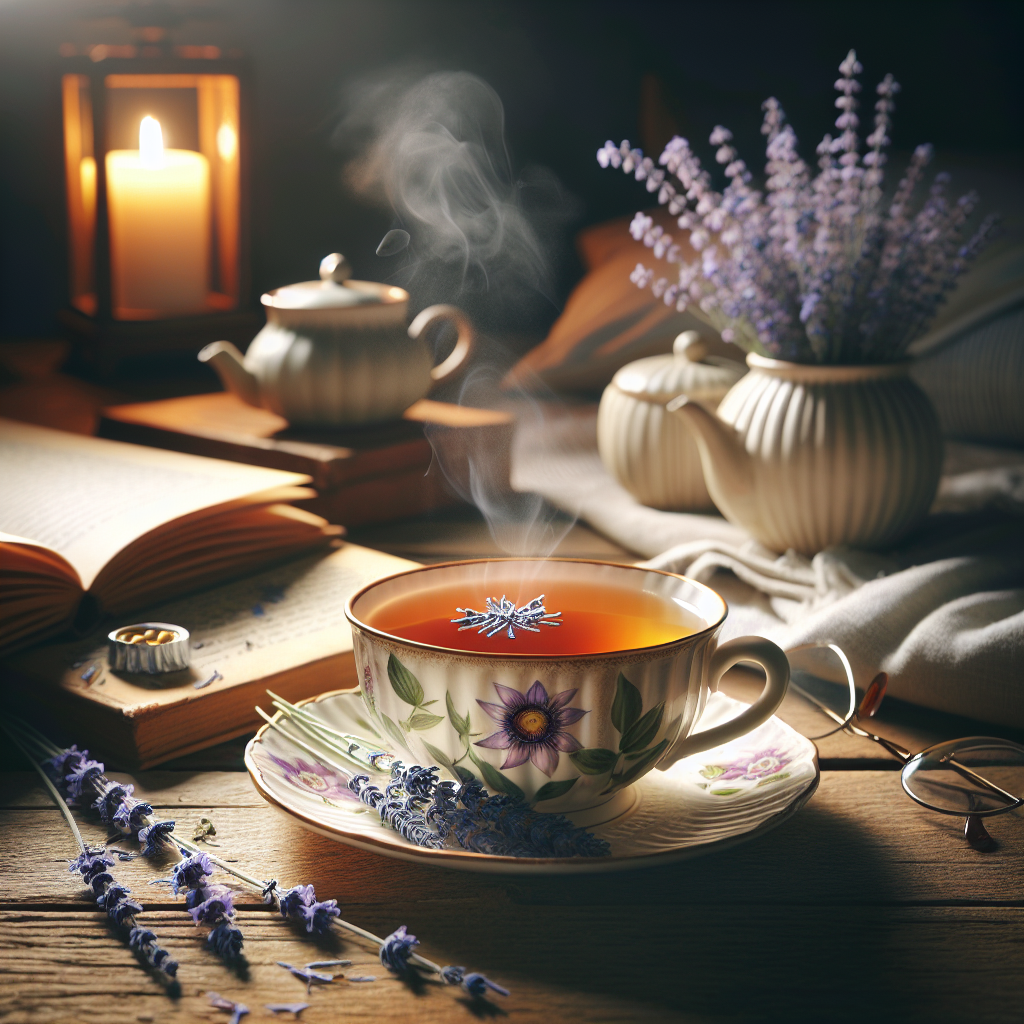Are you searching for a natural way to unwind and catch some restful sleep? Look no further than herbal teas! With their soothing properties, certain herbal teas have earned a reputation for promoting relaxation and enhancing sleep quality. From chamomile to valerian root, these teas offer a gentle and comforting way to unwind after a long day. So, if you’re wondering which herbal teas can provide you with the relaxation and sleep you crave, read on to discover their unique benefits and start enjoying a peaceful night’s rest. Yes, there are indeed specific herbal teas that have been known to promote relaxation and improve sleep. In this article, we will explore some of the most popular herbal teas for relaxation and sleep, as well as their potential benefits and compositions. So grab a cozy blanket, put on some soothing music, and get ready to relax as we delve into the world of herbal teas!

Herbal Teas for Relaxation
Chamomile Tea
Chamomile tea is perhaps one of the most well-known herbal teas when it comes to relaxation. This tea has a long history and origin, dating back thousands of years to ancient Egypt. It is composed of dried flowers from the chamomile plant, which contain several active compounds such as chamazulene and apigenin. These compounds are believed to have soothing properties that can help calm the mind and relax the body. Chamomile tea is often recommended for those dealing with anxiety or stress, as it may help reduce symptoms and promote a sense of overall calmness.
Lavender Tea
Lavender tea is another herbal tea that is often associated with relaxation. This beautiful purple flower has been used for centuries in aromatherapy and herbal medicine, and its tea is no exception. Lavender tea is made from dried lavender buds and has a subtle, floral flavor. It is believed to contain active compounds like linalool and linalyl acetate, which have been shown to have sedative and relaxing effects. Sipping on a warm cup of lavender tea before bed may help to calm the mind and prepare the body for a restful night’s sleep.
Passionflower Tea
Passionflower tea is a lesser-known herbal tea that deserves recognition for its relaxation-promoting properties. This tea is derived from the passionflower plant, which is native to North America. The leaves and flowers of the passionflower plant are used to create this tea, which is known for its slightly sweet and earthy flavor. Passionflower contains compounds like flavonoids and alkaloids, which are thought to have anxiolytic effects, meaning they can help alleviate anxiety and promote relaxation. Enjoying a cup of passionflower tea in the evening may help to unwind after a long day and support restful sleep.
Herbal Teas for Sleep
Valerian Root Tea
Valerian root tea is a popular choice for those seeking a natural remedy to improve sleep quality. Valerian root has a long history and origin, with its use dating back to ancient Greece and Rome. The tea is made from the dried roots of the valerian plant and has an earthy, somewhat musky flavor. Valerian root is believed to contain compounds like valerenic acid that interact with certain neurotransmitters in the brain, leading to its sedative effects. Drinking valerian root tea before bedtime may help to calm racing thoughts and promote a deep, restful sleep.
Peppermint Tea
While peppermint tea is often associated with soothing an upset stomach, it can also be beneficial for promoting sleep. Peppermint tea is made from dried leaves of the peppermint plant and has a refreshing, minty flavor. It is believed that the menthol content in peppermint leaves has muscle-relaxant properties, which can help to release tension and prepare the body for sleep. Additionally, the act of sipping on a warm cup of peppermint tea can be quite comforting and contribute to a sense of relaxation.
Lemon Balm Tea
Lemon balm tea, as the name suggests, is made from the leaves of the lemon balm plant. This citrus-scented herb has a long history and origin, with its use dating back to ancient Greece and Rome. Lemon balm tea has a delicate, lemony flavor and is often enjoyed for its calming effects. The active compounds found in lemon balm, such as rosmarinic acid, have been shown to have anxiolytic and sedative properties. Sipping on a cup of lemon balm tea before bed may help to ease anxiety, calm the mind, and promote a more restful sleep.

Combination Blends for Relaxation and Sleep
In addition to the individual herbal teas mentioned above, there are also combination blends available that combine the benefits of multiple herbs for enhanced relaxation and sleep support. Here are a few popular combinations:
Chamomile and Lavender Tea
Combining the soothing properties of chamomile and lavender can create a powerful relaxation blend. Chamomile and lavender tea has a calming aroma and a gentle, floral flavor. The combination of these two herbs may help to reduce anxiety, promote a sense of tranquility, and prepare the body for a restful night’s sleep.
Valerian and Passionflower Tea
Valerian and passionflower are both known for their sleep-promoting properties, so combining the two into a tea can be a great way to enhance their effects. Valerian and passionflower tea has a slightly earthy and floral taste, and it may help to alleviate anxiety, quiet the mind, and support a deep, rejuvenating sleep.
Peppermint and Lemon Balm Tea
The refreshing aroma and taste of peppermint combined with the calming effects of lemon balm create a delightful blend for relaxation and sleep. Peppermint and lemon balm tea has a bright, minty flavor and can help to relieve tension, reduce anxiety, and promote a sense of overall relaxation.
Potential Benefits of Herbal Tea Consumption
Incorporating herbal teas into your daily routine can provide a range of potential benefits for relaxation and sleep. Here are some of the key benefits:
Reduction of anxiety symptoms
Many herbal teas, such as chamomile, lavender, passionflower, and lemon balm, contain active compounds that have been shown to have anxiolytic effects. These teas may help to reduce symptoms of anxiety, such as restlessness and racing thoughts, and promote a sense of calm and relaxation.
Improvement in sleep quality
Several herbal teas, including valerian root, chamomile, and passionflower, have been traditionally used to improve sleep quality. These teas may help to relax the body and mind, ease the transition into sleep, and promote a more restful and rejuvenating sleep experience.
Decreased mental and physical fatigue
Drinking herbal teas, especially those with relaxing properties, can help to reduce mental and physical fatigue. By promoting relaxation and improving sleep quality, herbal teas may help to restore energy levels and support overall well-being.
In conclusion, herbal teas can be a wonderful natural remedy for promoting relaxation and improving sleep. Whether you choose to enjoy chamomile tea, lavender tea, passionflower tea, valerian root tea, peppermint tea, lemon balm tea, or a combination blend, incorporating these herbal beverages into your routine can provide a nurturing and soothing experience. So next time you feel the need to unwind and get a good night’s sleep, reach for a cup of herbal tea and let its calming properties envelop you in tranquility. Cheers to a more relaxed and restful you!

